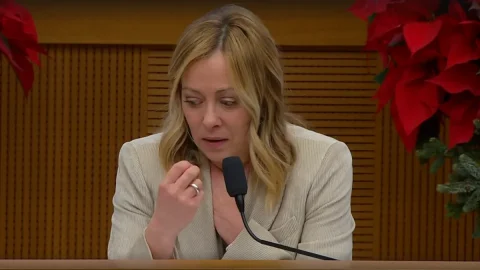From migrants to Turkey's future accession, from the health system to the costs of staying in Europe: "Brexit supporters have conducted a disinformation campaign to scare voters and induce them to vote in favor of Great Britain's exit from the EU". He writes it the facts.org website, which, openly deployed against London's farewell to Brussels, has collected "five of the most misleading myths" put into circulation by pro-Brexit propaganda.
1) "LESS MIGRANTS AND MORE MONEY: LEAVING THE EU TO SAVE THE HEALTHCARE SYSTEM"
Leading Brexit supporters say Britain could save its health care system by leaving the European Union, because it would reduce the number of immigrants arriving each year and stop the hemorrhage of money destined for Brussels.
The same politicians, however, always forget to point out that, in the event of an exit from the EU, the United Kingdom would lose its preferential access to the European market, to which about half of British trade is linked. This would cause such a severe economic shock that the country would not end up with any more money to spend: on the contrary, the resources available would drastically decrease.
As for EU migrants, they do not harm the health system, but they support it, because they pay more taxes than they use public services, being younger than the average British. Furthermore, one in 10 doctors in the UK is an EU migrant.
2) “GREAT BRITAIN SENDS 350 MILLION POUNDS TO BRUSSELS EVERY WEEK”
According to Boris Johnson, former mayor of London and main proponent of Brexit, Great Britain sends 350 million pounds to Brussels every week. This is not the case, since the United Kingdom still benefits from the substantial discount on payments to the EU negotiated in 1984 by Margaret Thatcher. It is curious that Johnson, a great Thatcher fan, does not remember this detail.
If we consider the Thatherian discount and the money returning from the European Union to the British coffers, it costs every citizen 30 cents a day to stay in the Union. But the benefits that everyone benefits from are worth much more.
3) “The EU NEEDS THE UK MORE THAN THE UK NEEDS THE EU”
Johnson also maintains that, once it leaves the EU, Great Britain could obtain a good trade agreement with Brussels: "Germany wants to continue selling us BMWs", argues the former mayor of London.
What Johnson doesn't say is that British exports to the EU represent 13% of the national economy, while EU exports to the UK are worth just 3% of the EU economy. Ergo: in a possible trade war, Great Britain has much more to lose than the European Union.
Furthermore, several multinationals (such as Nissan) have set up their European headquarters in the UK because they believe it is the best gateway to the continental market. In the event of Brexit, Germany and France could try to take this prerogative away from the United Kingdom.
4) “IN BRUSSELS THEY ALWAYS VOTE AGAINST US”
To arouse a sort of nationalist revenge, the "Leave" front claims that Great Britain is often in the minority in European elections. In reality, from 1999 to today, the United Kingdom's balance in the votes of the European Council would make any sporting champion pale: 56 defeats against 2.466 victories.
5) “TURKEY WILL BECOME A MEMBER OF THE EU IN 2020”
Michael Gove, the UK's Lord Chancellor and Secretary of State for Justice and ardent Brexit supporter, said Turkey is about to join the EU. However, the conservative politician avoids mentioning that, in order to obtain the go-ahead from Brussels, Ankara will have to demonstrate that it is a modern European democracy from every point of view, from human rights to the economy. And even if it succeeds – an unlikely prospect today – Great Britain or any other member of the Union could oppose the entry of the Turks, exercising the right of veto.
Furthermore, Turkey's first application for EU membership dates back to 1987. Since then, Ankara has met the requirements of only one thematic chapter out of 35. At this rate, it will be able to join the Union in 986 years, in 3002 .





